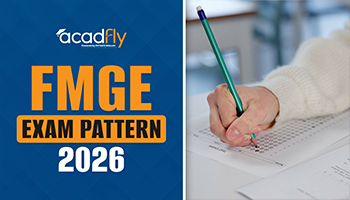

How Much Does It Cost to Study Medicine in Ireland?
For many aspiring doctors around the world, Ireland represents a beacon of excellence in medical education. With its esteemed universities and innovative healthcare training programs, studying medicine in Ireland has become a coveted goal for many international students. However, before packing your bags and setting your sights on the Emerald Isle, it's crucial to understand how much it costs to study medicine in Ireland. This comprehensive guide will break down the expenses associated with medical education in Ireland, explore what these programs offer, and provide practical advice for international students.
Understanding the Cost of Studying Medicine in Ireland
The cost of studying medicine in Ireland can vary significantly depending on whether you are an EU or non-EU student. For non-EU students, the fees are considerably higher. Here’s a look at what you can expect:
|
University |
Annual Tuition Fees for Non-EU Students |
|
Trinity College Dublin |
€45,000 - €55,000 |
|
University College Dublin |
€55,000 - €65,000 |
|
Royal College of Surgeons |
€55,000 - €65,000 |
|
National University of Ireland, Galway |
€45,000 - €55,000 |
|
University College Cork |
€45,000 - €55,000 |
These fees cover the cost of instruction and access to university facilities but do not include living expenses, books, and other materials.
Additional Costs
Beyond tuition, prospective medical students should budget for:
-
Accommodation: Ranging from €500 to €1,200 per month depending on the location and type of housing.
-
Living Expenses: Including food, travel, and leisure, expect to spend around €1,000 to €1,500 monthly.
-
Books and Equipment: Medical books and instruments can add up to €1,000 or more annually.
-
Health Insurance: Approximately €500 per year, which is mandatory for all non-EU students.
Eligibility and Admission Requirements
To study medicine in Ireland, international students must meet specific criteria:
-
Academic Records: High school diploma with excellent grades in science subjects (Biology, Chemistry, Physics).
-
Entrance Exams: Most Irish medical schools require scores from the HPAT (Health Professions Admission Test) or similar exams.
-
Language Proficiency: Non-native English speakers must provide IELTS or TOEFL scores to prove their proficiency.
Benefits of Studying Medicine in Ireland
Here are some reasons why you should choose Ireland:
-
Global Recognition: Irish medical degrees are recognized worldwide, allowing graduates to pursue careers globally.
-
Clinical Training: Students gain hands-on experience in technologically advanced hospitals.
-
Cultural Diversity: Ireland’s universities are culturally diverse, providing a rich environment that enhances personal and educational growth.
Scholarships and Financial Aid
Several scholarships are available for international students to help mitigate the cost of studying medicine in Ireland:
-
Government of Ireland International Education Scholarships
-
University-specific scholarships: Many Irish universities offer scholarships based on merit or need.
Conclusion
The journey to study medicine in Ireland for international students is an investment in your future, both financially and professionally. While the costs are substantial, the quality of education and the prospects of post-graduation make it a worthwhile endeavor. For those needing personalized guidance or assistance with the application process, AcadFly Counsellor is here to help. They can provide valuable insights and support to ensure you maximize your chances of success in your ambitions to study abroad in Ireland.
FAQs
Is a scholarship available for all international students?
Not all, but many. You'll need to check specific eligibility criteria for each scholarship.
Can I work while studying medicine in Ireland?
Yes, international students are allowed to work up to 20 hours per week during the semester and full-time during breaks.
What are the career prospects after graduating from an Irish medical school?
Graduates can work in hospitals, and research facilities, or pursue further specialization in Ireland or abroad.
How long is the medical program in Ireland?
The undergraduate medical program typically lasts six years.
Are there any exams I need to pass after graduation to practice medicine?
Yes, you will need to pass a licensing exam in the country where you intend to practice.
Frequently Asked Questions









